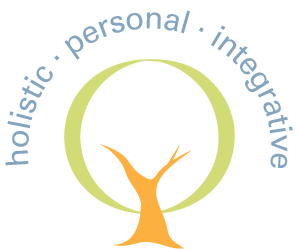TMJ Disorders
Physical Therapy can help if you have face, jaw and/or neck pain due to muscle and joint dysfunction.
Symptoms of TMJ may include:
- Pain – in the jaw, face, cheek, side of head, and neck or upper shoulders.
- Headaches – most commonly on the side of the head (temporal) and back of head near the neck (occipital), but can also be over the eyes (orbital) or on the forehead (frontal).
- Tightness (muscle tension) – in cheeks, jaw, forehead, temporal sides of the head, neck and upper shoulders
- Lack of jaw mobility – difficulty opening jaw for eating, talking and yawning.
- Jaw locking
- Uneven opening of the jaw, or a sensation of your “bite feeling off” upon mouth closure.
- Clicking or grating sounds in the jaw joints upon opening and closing the mouth
- Ear symptoms – pain, ringing (tinnitus), or a sensation of clogging (ear infection is ruled out).
- Tooth pain in apparently healthy teeth (infection ruled out).
- Difficulty with talking, eating, chewing, swallowing, smiling, yawning or moving your neck
What is TMJ?
TMJ is actually an acronym, for the TemporoMandibular Joint. It is otherwise known as the 2 jaw joints responsible for opening and closing your mouth. Often, the symptoms mentioned above can be due to muscle and/or joint dysfunction. While many people are accustomed to call their jaw pain and dysfunction “TMJ”, more appropriate diagnoses include:
- TemporoMandibular Dysfunction or Disorders (TMD)
- Orofacial Pain
- Craniomandibular Disorders
- Craniofacial Pain
What causes Jaw and Neck pain?
The causes of jaw and face pain are often complex, multi-factorial and even intertwined. Some listed causes stated below may be classified as initiating factors while others others may be categorized as exacerbating or perpetuating factors. Often they are difficult to distinguish. Usually, there is an interplay between emotive, physical and physiological factors.
Some of the postulated causes of jaw pain include:
- Stress – emotional, physical, and or psychological stress can cause real physiological reactions and changes in the jaw, facial and neck muscles. These muscles can become overused, tight and fatigued leading to a repetitive cycle of pain or a referral pattern of pain.
- Trigger points in the neck, upper shoulders, face and jaw muscles can be painful and they can also refer pain to other parts of the face, teeth, jaw and head.
- Referred pain can also come from the muscles and joints in the Neck (Cervical Spine).
- Teeth clenching, grinding teeth (bruxism) and other oral habits involve repetitive overuse of the biting muscles such as gum chewing, biting nails, or biting the inner cheeks or lips.
- Side effects of some prescription medications may cause muscle tightness, teeth clenching or grinding and pain.
- Sleep deprivation can accentuate muscle tightness and pain.
- Joint disruption – Internal structures of TMJ may be worn down, overstretched or damaged.
- Arthritis of the Temporomandibular Joint (TMJ) – Osteoarthritis, Rheumatoid Arthritis
- Fibromyalgia
- Myofascial Pain Syndrome
- Irritable Bowel Syndrome
- Chronic Fatigue Syndrome
- Depression
- Anxiety
- Trauma such as a blow to the face or jaw , a fall, fractured jaw bones.
- Whiplash Injuries
- Prolonged mouth opening – as during lengthy dental procedure, surgery requiring general anaesthesia and intubation (breathing tube through the mouth), excessive yawning.
How can Segelov Physical Therapy help?
A thorough evaluation is performed to help determine the root cause of your symptoms. A plethora of techniques are utilized to relieve your pain and dysfunction including:
- Manual therapy (massage, myofascial release and joint mobilization)
- Therapeutic exercise (stretching and strengthening)
- Neuromuscular re-education
- Postural retraining
- Education of harmful habits that exacerbate your symptoms and how to avoid them
- Relaxation strategies
- Ergonomic review of work, home and recreational habits
- Breathing exercises
- Strategies to avoid clenching and bracing of the jaw
Leah works in close collaboration with your dentist and doctor to ensure the most comprehensive care.
A personalized treatment plan for you
An individualized treatment will be designed and tailored to meet your needs and goals. The ultimate goal of which is to alleviate your symptoms and prevent re-occurrence.

 © copyright 2015 Segelov Physical Therapy, PLLC. All rights reserved.
© copyright 2015 Segelov Physical Therapy, PLLC. All rights reserved.